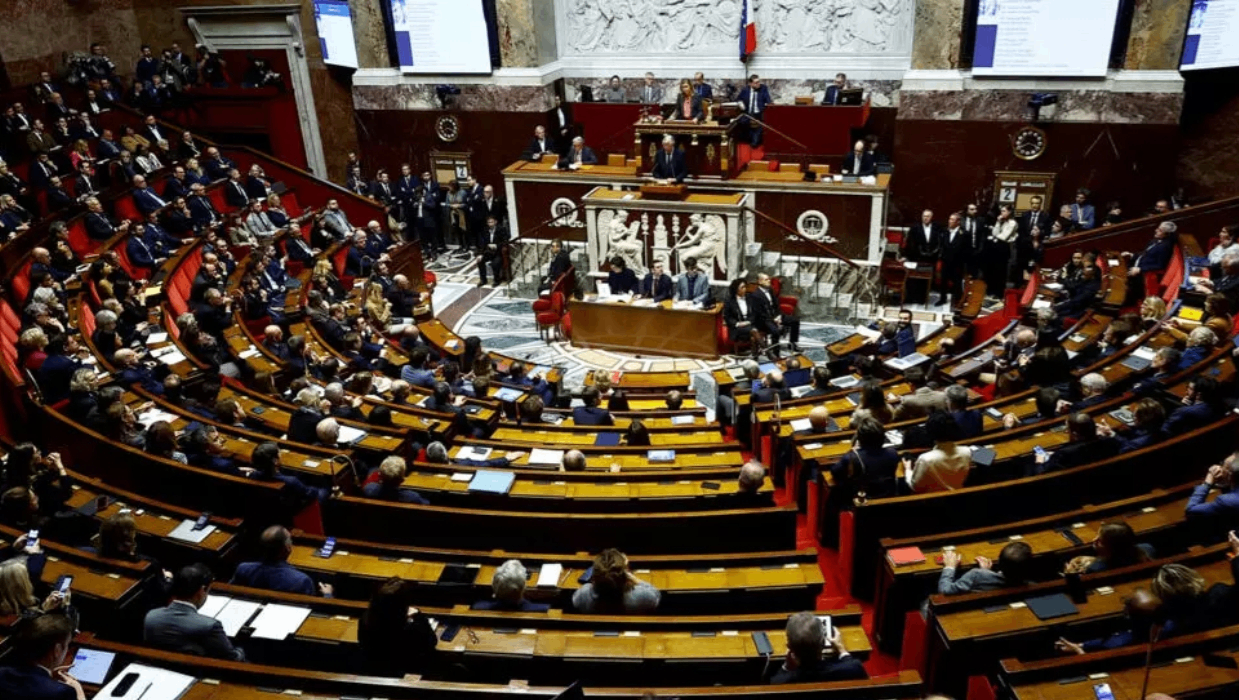Barnier's government may become the first French government to fall due to a vote of no confidence since 1962.
As early as December, the French government was hit by a big thunder.
On December 2, French Prime Minister Barnier planned to bypass Parliament and forcibly approve the unpopular budget bill, causing both the far-right National Alliance and the left-wing party to threaten to launch a vote of no confidence, and the dissolution of the French government was almost certain.
What is the cause?
In October this year, French Prime Minister Barnier proposed a draft budget for 2025 at a ministerial meeting.The draft aims to reduce the fiscal deficit to 5% of gross domestic product in 2025 by cutting fiscal expenditures by approximately 40 billion euros and increasing fiscal revenue by nearly 20 billion euros, and plans to further reduce it to 3% by 2029.
However, this draft budget aborted in the National Assembly.To push the budget through, Barnier made new compromises, including withdrawing a proposal to increase electricity taxes.Despite this, National League leader Marina Le Pen still proposed a series of changes, such as adjusting pensions based on inflation and reducing contributions to the EU budget, and the two sides were deadlocked.
On the afternoon of the 2nd, the National Assembly again debated the draft 2025 Budget Bill.Because Barnier's camp did not have a majority in the National Assembly, the Prime Minister was forced to invoke Article 49.3 of the Constitution and allow the government to pass the bill without a parliamentary vote-an act that aroused dissatisfaction from the opposition government.
According to the latest reports, a vote of no confidence in Barnier's government is expected to be held on December 4, which is this Wednesday.Analysts pointed out that barring a last-minute surprise, Barnier's government could become the first French government to fall due to a vote of no confidence since 1962.
Market performance?
The French government has changed and the European market has undergone a huge earthquake.French stocks fell to their lowest point in more than three months this week and the French bond market was also hit, sending the premium the government pays on long-term borrowing to its highest level since 2012.
On Monday, French stocks and the euro both fell more than 1% at one point. Investors flocked to German bonds to avoid safety. The spread between France and Germany's 10-year government bonds once widened by 8 basis points to 89 basis points, the largest increase since June and close to Twelve years. The widest.Dollar index futures rose 0.64% to 106.50.
As of the close, the French stock market was mixed, with rising sectors such as consumer goods, basic materials and software leading the stock index higher; at the same time, falling sectors such as the oil and natural gas, financial and technology sectors drove the stock index lower.At the close in Paris, France's CAC40 index rose 0.02%, while the SBF 120 index fell 0.13%.
According to statistics, 388 stocks fell on the Paris Stock Exchange yesterday, 125 stocks rose, while 73 stocks did not rise or fall, basically flat.Among them, Stellantis NV shares plunged to a one-year low, down 6.37 to close at 11.73;Solutions 30 SE shares plunged to a low, down 7.23% to close at 0.80.
The CAC40 VIX, used to measure the implied volatility of options on the French CAC40 index, remained unchanged at 0.00% to 18.96, a one-year high.

